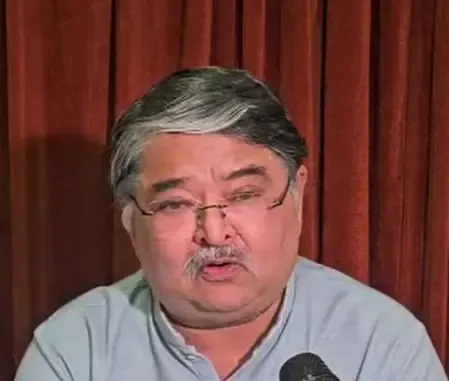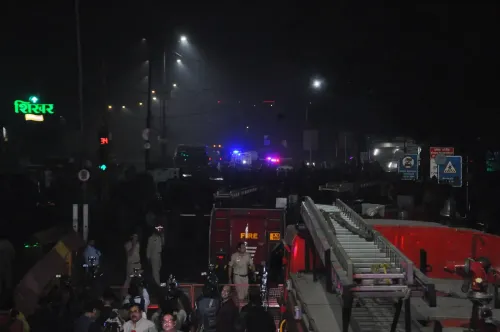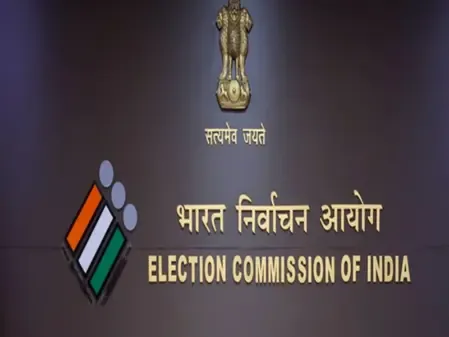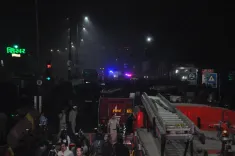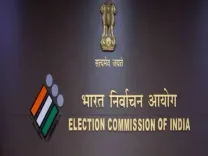Maha: MMRDA to Roll Out Holistic Financial Compensation Plan for PAPs
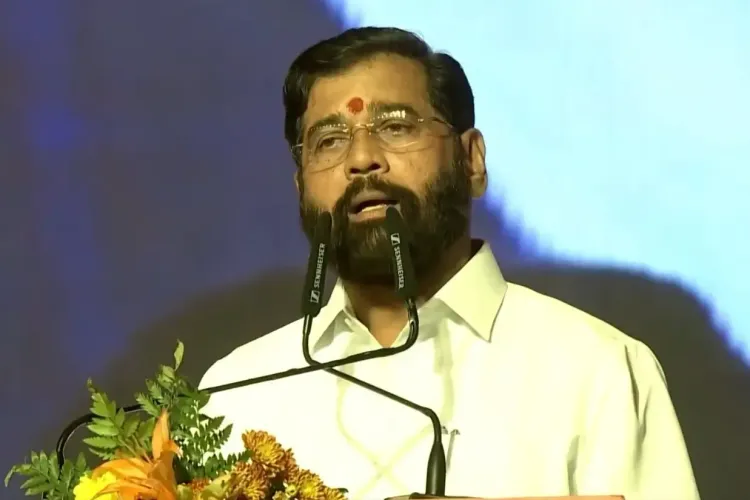
Synopsis
Key Takeaways
- MMRDA's new compensation policy targets Project-Affected Persons.
- Compensation will be determined based on Ready Reckoner Rates.
- A minimum of Rs 25 lakhs for residential PAPs.
- Policy aims to reduce project delays and litigation costs.
- Provides financial aid instead of resettlement to colonies.
Mumbai, April 3 (NationPress) The Mumbai Metropolitan Region Development Authority (MMRDA) is set to introduce a holistic financial compensation policy designed to accelerate the resettlement process for Project-Affected Persons (PAPs) involved in various high-impact urban infrastructure initiatives.
This resolution was endorsed during the recently conducted 159th Authority Meeting, presided over by Deputy Chief Minister and MMRDA Chairman Eknath Shinde.
MMRDA anticipates that this policy will address persistent issues concerning resettlement and considerably enhance the progress of key projects such as the Metro Railway, Mumbai Trans Harbour Link (MTHL), Sewri-Worli Elevated Corridor, and several other significant urban mobility ventures.
The financial compensation framework will extend to all major infrastructure projects executed by MMRDA under the Mumbai Urban Transport Project (MUTP) umbrella. This includes initiatives like the Metro, Sewri-Worli Elevated Corridor, Thane-Borivali Underground Road, among others. The policy will also encompass both residential and non-residential properties impacted by these projects.
According to the financial compensation policy, MMRDA will provide compensation for residential properties based on the Ready Reckoner Rates (RR), which will differ based on the affected individual's category and location.
A minimum compensation of Rs 25 lakhs will be allocated for residential PAPs in both category 1 legal and authorized structures as well as category 2 squatters and encroachers. While category 2 has a ceiling of Rs 40 lakhs, category 1 is limited to a 1292 sq ft area. Compensation will be disbursed at 100 percent of the RR rate for authorized and legal structures and 0.75 percent RR rate for encroachments and squatters.
For non-residential PAPs affected, compensation will be determined based on the RR rates for ground-floor commercial properties. For qualifying areas up to 225 sq ft, compensation will be given at 100 percent of RR rates for legal structures and 0.75 percent RR rates for encroachments and squatters.
This policy will afford project-affected individuals the choice to receive financial assistance rather than relocation to resettlement colonies, providing a more effective and adaptable solution for all parties involved, as stated by MMRDA in a release.
The financial compensation policy was developed especially as MMRDA has embarked on several ambitious projects including the Santa Cruz-Chembur Link Road, Jogeshwari-Vikhroli Link Road, Metro, Monorail, and the Versova-Virar Coastal Road.
The ongoing initiatives, such as the Sewri-Worli Elevated Corridor and the Thane (Tikujiniwadi) to Mankhurd–Borivali Underground Road, are projected to impact around 6,300 individuals according to preliminary assessments.
Due to limited tenement availability near the affected areas, some project-affected individuals have resisted resettlement, causing delays in project advancement. The policy aligns with the BrihanMumbai Municipal Corporation’s framework, which provides financial compensation as an alternative to resettlement tenements.
This policy is structured to guarantee that affected individuals receive proper compensation, thus preventing further delays and rising costs linked to litigation and disputes over tenement space. It will facilitate the timely completion of essential projects financed through World Bank loans and other funding sources, thereby avoiding budget overruns and ensuring the successful enhancement of the city’s infrastructure.
Commenting on the policy, Chief Minister Devendra Fadnavis stated: “Through this innovative financial compensation policy, we are making significant strides in transforming Mumbai’s infrastructure. By focusing on timely project completion and minimizing disruptions, we are promoting the city’s rapid growth and development. This progressive strategy will not only improve connectivity but also yield long-term benefits for Maharashtra’s economy and the well-being of its residents, paving the way for a more sustainable and prosperous future.”
Meanwhile, Deputy Chief Minister Eknath Shinde remarked that the policy will facilitate efficient resettlement, minimizing unnecessary delays in vital urban infrastructure projects.
“By offering financial compensation, MMRDA is progressing towards a modern and flexible model that will expedite the execution of key projects, such as the Sewri-Worli Elevated Corridor and Metro Line projects, ensuring these crucial initiatives are completed within the set timelines,” said the Deputy Chief Minister.


